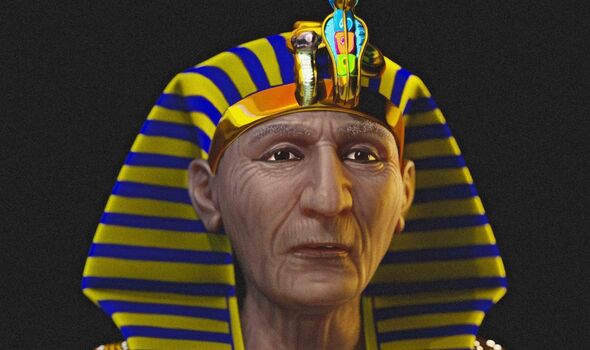The “wise” face of ancient Egypt’s most powerful pharaoh has been revealed after scientists rebuilt his likeness – but the experts behind the reconstruction fear being branded racist.
Ramesses II is widely regarded as one of the most powerful pharaoh’s of ancient Egypt’s most powerful period. Around 90 when he died, he reigned in the 13th century BC, and was lauded for his military exploits, and building projects like the temples of Abu Simbel.
Now using his mummified skull, experts have recreated his face at the time of his death – but they’re bracing themselves for criticism over the skin tone they believe he had.
Cicero Moraes, the Brazilian graphics expert behind the new recreation, said: “There is always great debate about each reconstructed face of a Egyptian mummy.
“The majority generally appreciate the result, but occasionally some groups complain about the skin colour, considering it too light or too dark.
“In the present study we carried out a very broad analysis, comparing the reconstructed face with statues of Ramesses II. The objective was to understand to what extent the statues are reliable, as many imagine that compatibility would be good.
“But we saw that this is not the case – the statues indicate good compatibility with the shape of the nose and even, in some situations, with the shape of the face. But generally the forehead is more delicate, and the lips and chin are more pronounced in the statues, which makes them insufficiently reliable.
“We also analysed anthropometric and DNA data from ancient Egyptian populations, and all paths seem to point to a population made up of many elements that are difficult to standardise.”
Ultimately, Cicero said, they decided to go with a “colour palette very compatible with that used in works of art from ancient Egypt”.
But they also created an objective version of the pharaoh’s face, with eyes closed and in greyscale, which avoids making any judgements about complexion. However Cicero admitted that regardless there would be detractors.
Mr Moraes said: “There is always criticism about any work that is published on the internet, just look at the comments on the news and the debate on social networks.
“I am in favour of freedom of expression.
“I myself have never blocked anyone on my networks for thinking differently than me or for insulting me.
“But I also have freedom of expression and I generally use it to clarify points and refute what is incoherent.”
